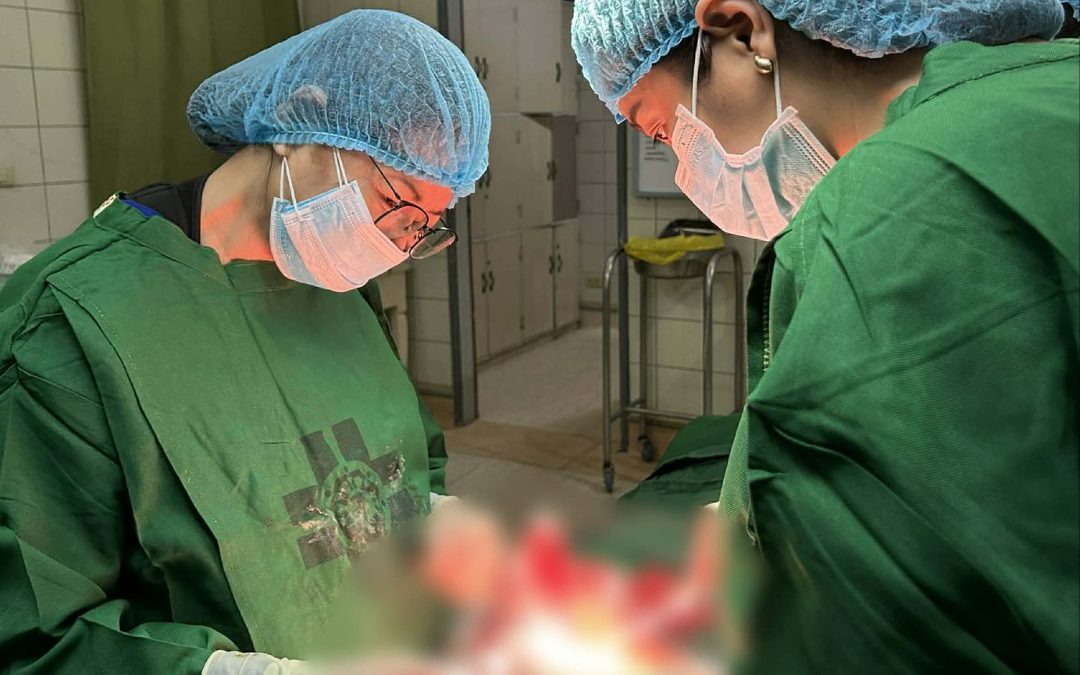Menstrual disorders encompass a variety of conditions that affect the regularity, duration, and amount of bleeding during a woman’s menstrual cycle. Common menstrual disorders include:
1. Dysmenorrhea (Painful Periods)
- Symptoms: Severe menstrual cramps and pain in the lower abdomen, often accompanied by nausea, vomiting, and fatigue.
- Causes: Can be primary (without an underlying condition) or secondary (due to conditions like endometriosis or fibroids).
2. Amenorrhea (Absence of Menstruation)
- Primary Amenorrhea: No menstruation by age 15.
- Secondary Amenorrhea: Missed periods for three or more consecutive months in a woman who previously had regular cycles.
- Causes: Hormonal imbalances, excessive exercise, eating disorders, stress, or medical conditions such as polycystic ovary syndrome (PCOS) and thyroid disorders.
3. Menorrhagia (Heavy Periods)
- Symptoms: Excessive menstrual bleeding that lasts more than seven days or requires frequent changing of sanitary protection.
- Causes: Hormonal imbalances, uterine fibroids, polyps, endometriosis, or bleeding disorders.
4. Oligomenorrhea (Infrequent Periods)
- Symptoms: Irregular menstrual cycles with intervals longer than 35 days.
- Causes: Hormonal imbalances, PCOS, significant weight loss or gain, and stress.
5. Polymenorrhea (Frequent Periods)
- Symptoms: Menstrual cycles that are shorter than 21 days.
- Causes: Hormonal imbalances, thyroid issues, or structural abnormalities in the reproductive organs.
6. Premenstrual Syndrome (PMS)
- Symptoms: Physical and emotional symptoms such as bloating, breast tenderness, mood swings, and irritability that occur before the menstrual period.
- Causes: Fluctuations in hormone levels and changes in brain chemicals.
7. Premenstrual Dysphoric Disorder (PMDD)
- Symptoms: Severe form of PMS with more intense emotional and physical symptoms that interfere with daily activities.
- Causes: Similar to PMS, but the exact cause is not fully understood.
8. Abnormal Uterine Bleeding (AUB)
- Symptoms: Bleeding that is irregular in volume, duration, or timing outside of normal menstrual periods.
- Causes: Hormonal imbalances, fibroids, polyps, adenomyosis, or cancer.
9. Endometriosis
- Symptoms: Painful periods, pain during intercourse, heavy bleeding, and infertility.
- Causes: Endometrial tissue growing outside the uterus.
10. Polycystic Ovary Syndrome (PCOS)
- Symptoms: Irregular periods, heavy bleeding, excessive hair growth, acne, and weight gain.
- Causes: Hormonal imbalance leading to the development of cysts on the ovaries.
Treatment and Management
Lifestyle Changes
- Healthy Diet: Balanced nutrition can help regulate menstrual cycles and reduce symptoms.
- Regular Exercise: Helps manage weight, reduce stress, and improve overall health.
- Stress Management: Techniques such as yoga, meditation, and deep breathing exercises can alleviate symptoms.
Medications
- Pain Relief: NSAIDs (like ibuprofen) for menstrual cramps.
- Hormonal Therapies: Birth control pills, patches, or rings to regulate menstrual cycles.
- Gonadotropin-Releasing Hormone (GnRH) Agonists: Used for severe endometriosis.
- Antidepressants: For severe PMS or PMDD.
Medical Procedures
- Dilation and Curettage (D&C): To remove the uterine lining in cases of heavy bleeding.
- Endometrial Ablation: To destroy the uterine lining to reduce heavy bleeding.
- Laparoscopy: For diagnosing and treating conditions like endometriosis.
- Hysterectomy: Removal of the uterus, considered in severe cases where other treatments have failed.
Consultation with Healthcare Provider
- Regular Check-Ups: Routine visits to a gynecologist for monitoring and managing menstrual health.
- Tailored Treatment Plans: Personalized care based on individual medical history and specific symptoms.
Addressing menstrual disorders involves a combination of lifestyle adjustments, medical treatments, and professional healthcare guidance to ensure effective management and improved quality of life.
For inquiries, you may call or message us at:
961-2234, 961-2442, 961-2284, 961-2616
B.Mendoza St., Sto.Rosario, City of San Fernando, Pamp



